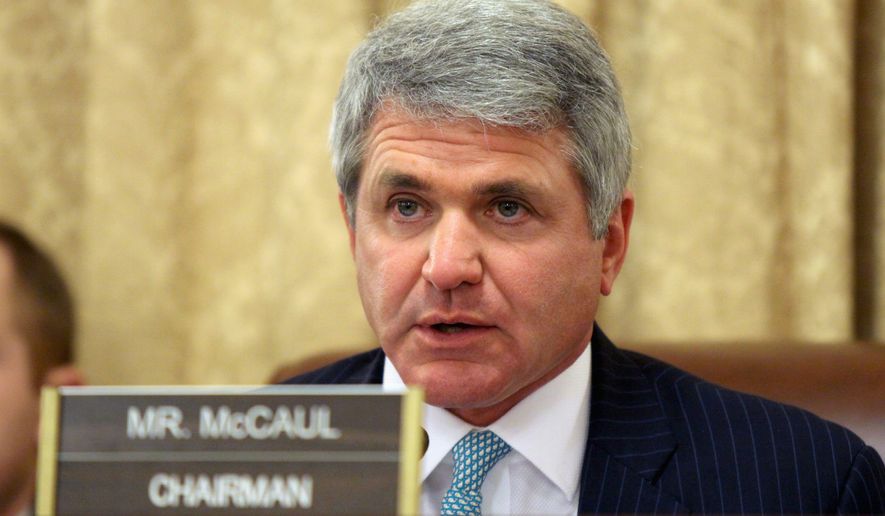House Committee on Homeland Security Chairman Michael T. McCaul called on President Obama to head a multinational coalition responsible for building an armed force capable of stamping out the “terrorist sanctuary” in Syria.
Mr. Obama must take “immediate steps” to quash the Islamic State, also known as ISIS, and other terrorists in Syria before more attacks inspired by their “hateful ideology” take place in the United States, the Texas Republican said Wednesday in a speech at The Heritage Foundation in Washington.
His call for stronger actions overseas came as FBI agents have declared Muhammad Youssef Abdulazeez, who killed four U.S. Marines and a Navy sailor during a July 16 shooting spree at two military facilities in Chattanooga, Tennessee, a “homegrown violent extremist.”
The 24-year-old man had been “radicalized” prior to gunning down the military members, said Ed Reinhold, the FBI’s special agent in charge in Knoxville. Mr. Abdulazeez was likely inspired by jihadi propaganda often spread by terror groups such as the Islamic State and al Qaeda, officials said.
The Islamic State has been able to hold key territory in Syria and Iraq and thrive despite constant airstrikes by members of U.S.-led coalition Operation Inherent Resolve, Mr. McCaul said. That victory is in part attributable to President Obama’s decision not to send ground troops to the region or expand the current air campaign, he said.
That failure to effectively combat the violent adversary calls for a new approach — one that requires a coalition composed of regional partners to come up with a plan for forcing Syrian President Bashar Assad to step down, Mr. McCaul said. It will be impossible to clear the Islamist terror safe haven in Syria anytime in the near future with the current regime in power, he said.
But that will be hard given the U.S. has told the few Syrian opposition forces it is training not to tussle with Mr. Assad, said Dakota Wood, senior research fellow of defense programs at Heritage.
“It’s an extraordinary set of filters that have been put into place, and it makes it very hard for the U.S. or a coalition to raise up an army out of this very messy situation,” he said.
Mr. McCaul told The Washington Times that he has already discussed with U.S. Central Command and U.S. Special Operations Command military officials the feasibility of standing up a second coalition to quash the terrorist sanctuary in Syria and dethrone the Assad regime. That discussion took place when he met with military officials in Florida last week.
Central Command’s “mission is to plan and prepare for a variety of different scenarios, and so it’s obviously something they have been studying,” he told The Times.
Neither the National Security Council nor U.S. Central Command answered questions about whether the U.S. is exploring the possibility of standing up a second coalition.
But a senior Pentagon official told The Times the U.S. military is focused more on battling back the Islamic State in Iraq and Syria and a secondary coalition is not a top priority, the official said.
“I don’t think there’s any kind of serious effort underway to do what he’s talking about, at least from a planning perspective,” the official said. “We’re operating under a current strategy, and there is no plan to change the strategy.”
• Maggie Ybarra can be reached at mybarra@washingtontimes.com.




Please read our comment policy before commenting.